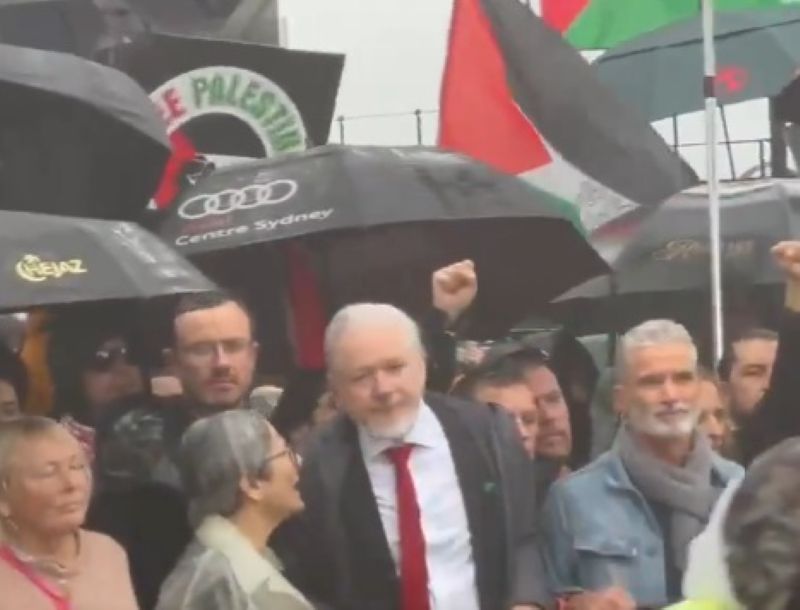
A large number of pro-Palestine marchers, including WikiLeaks founder Julian Assange, joined a protest march on Australia’s iconic Sydney Harbour Bridge on Sunday, forcing the landmark structure to close to traffic.
The protesters braved rain and inclement weather to march in the city, protesting Israel’s conduct in Gaza, where a large number of people are starving due to the blocking of food aid supplies.
The march began at around 1pm (local time), with former Australian foreign minister and New South Wales premier Bob Carr joining it.
“It’s even bigger than my wildest dreams,” one of the main protest organisers, Josh Lees, told Guardian Australia while at the front of the march.
Lees said: “It’s a mass march for humanity to stop a genocide, our politicians have to now listen to the will of the people and sanction Israel.”
The march was supposed to end at the US consulate, but police directed the participants to stop the rally due to safety concerns.
The NSW Police Acting Deputy Commissioner Peter McKenna told reporters, as quoted by The Guardian, that the protest was the largest he and an Assistant Police Commissioner had seen in their time in the force in Sydney.
“Gee whiz, I wouldn’t like to try and do this every Sunday at that short notice,” he said. “At points today, we were really concerned about a crowd crush.”
This was one of the rare public appearances of Assange since he returned to Australia following his decade-long extradition battle.
He did not comment to the media or address the rally.
As Gaza faces famine-like conditions, large numbers of people reportedly continue to be killed and injured while searching for food, the UN Office for the Coordination of Humanitarian Affairs (OCHA) said on Friday.
The months-long deprivation of most life-sustaining basic goods has led to a deepening of the crisis. More than 100 people were killed, and hundreds of others injured, along food convoy routes and near Israeli-militarised distribution hubs in the past two days alone.
With one in three people currently going days without food, OCHA reiterated that no one should ever be forced to risk their life to get something to eat.
Ted Chaiban, Deputy Director of UN children’s agency UNICEF, who is fresh from a visit to Gaza, noted that “the marks of deep suffering and hunger were visible on the face of families and children.”
He was briefing journalists in New York about his five-day visit to Gaza, the West Bank and Israel.


